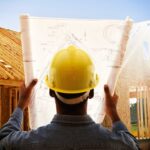If you’re a private landlord in England or Wales, understanding your legal responsibilities around EPCs forrental properties is essential. Energy regulations have tightened in recent years, and with further updates expected beyond 2026, staying compliant is critical to protecting your rental income. This fully updated guide explains what an EPC is, the current Minimum Energy…
2 Essential Regulations for Historic Building EPC Assessments
Historic buildings are a valuable part of the property market, but meeting energy efficiency and energy performance requirements can be complex, particularly where heritage protections and planning controls apply. This guide explains two core regulations that govern historic building EPC assessments, then covers the key laws, exemptions, and practical considerations that affect which energy efficiency…
HEM vs. SAP: What’s Changing, When It’s Changing, and What It Will Cost
Energy regulation in the UK is entering a period of transition for new homes. The long-established Standard Assessment Procedure (SAP), which assesses residential properties and produces Energy Performance Certificates (EPCs), is planned to be phased out and replaced by the Home Energy Model (HEM), a new methodology that the government intends to provide a more…
Understanding U-Values: How Windows and Doors Shape Energy Efficiency in Your Home
Windows and doors do far more than bring light and access to your home, they play a major role in how well it retains heat. Their performance is measured by one key metric: the U-Value. A U-Value shows the rate of heat transfer through a material, measured per square metre for every degree of temperature…
SAP Calculations and U-Values: How They Work Together for Compliance
Energy efficiency is at the heart of modern building design. In the UK, every new build, conversion, or extension must meet strict standards under the Building Regulations, and two of the most important metrics in achieving compliance are SAP Calculations and U-Values. While both are used to assess a building’s thermal performance, they measure different…
Difference Between Airborne and Impact Sound – What UK Homeowners Need to Know
Noise is one of the most common frustrations in modern living, whether you own a home, live in a flat, or manage a residential development project. Understanding how sound travels through buildings is essential, not just for peace and comfort but also for compliance with Part E Building Regulations, which govern sound insulation in the…
How to Improve Sound Insulation in Existing Homes Without Major Renovation
Whether you’re a developer working on a conversion project that needs to comply with Part E Building Regulations or a homeowner dealing with excess noise, the impact of poor sound insulation is hard to ignore. Noise problems don’t just affect comfort and sleep; they can make homes less appealing to buyers, cause disputes, and, in…
SAP 10 vs. SAP 2012: Key Differences Developers Must Know
For over a decade, SAP (Standard Assessment Procedure) 2012 was the standard framework for assessing the energy performance of dwellings across the UK. Every developer, architect, and builder relied on it when working to comply with Building Regulations Part L and to secure a valid Energy Performance Certificate (EPC). The energy landscape, however, underwent significant…
Build Energy Efficiently: New Construction Materials Guide
As UK energy standards tighten, the construction industry faces growing pressure to deliver energy-efficient houses and sustainable buildings that meet modern regulations. One of the most effective ways to achieve this is by using eco-friendly construction materials that reduce energy consumption, cut carbon emissions, and improve long-term performance. By making the right material choices, developers…
When Is an EPC Not Required? A Guide for Commercial and Residential Property Owners
In the UK, Energy Performance Certificates (EPCs) are a legal requirement in most situations when you sell, let, or construct a property. They give buyers, tenants, and landlords an energy efficiency rating, alongside a recommendation report detailing possible energy efficiency measures to help reduce energy bills and improve comfort. However, there are certain circumstances where…












